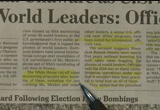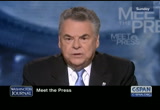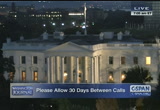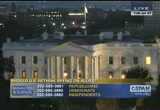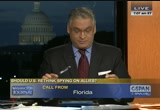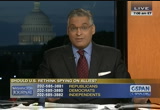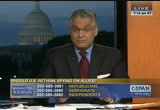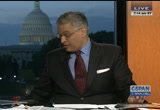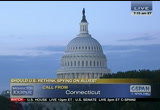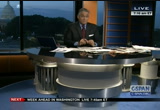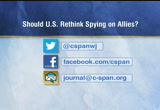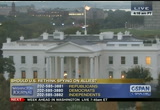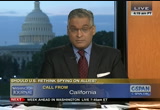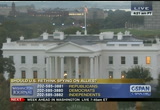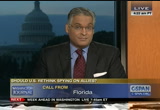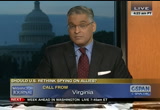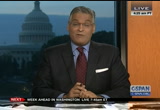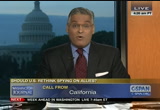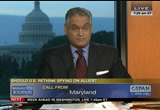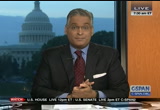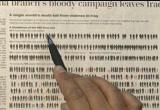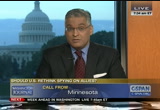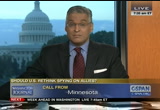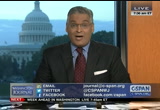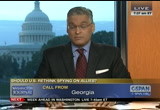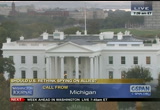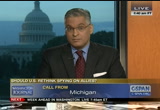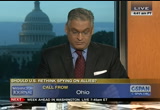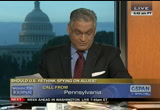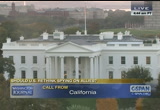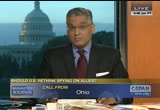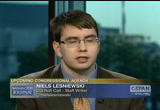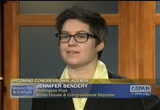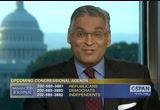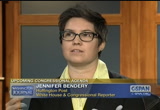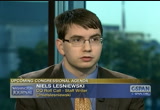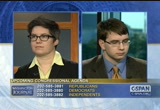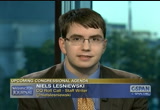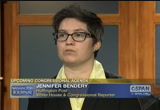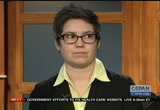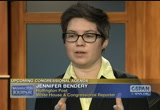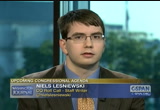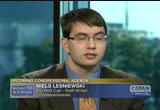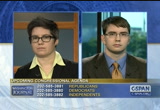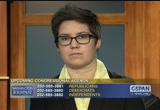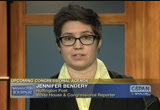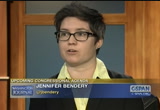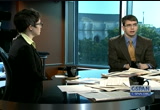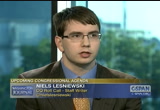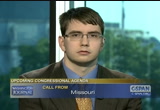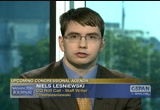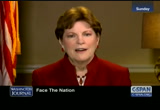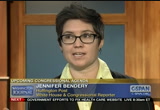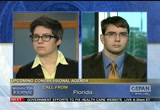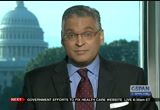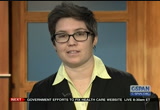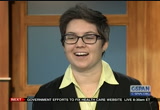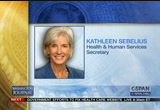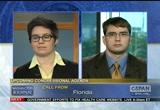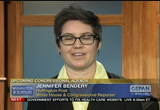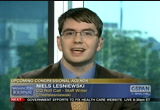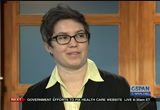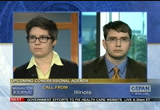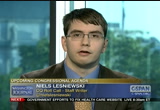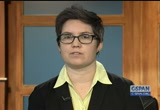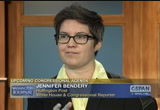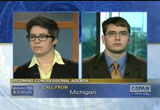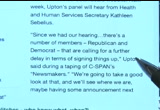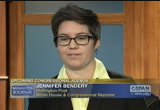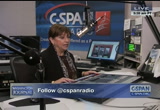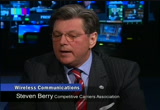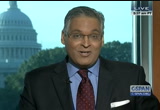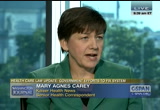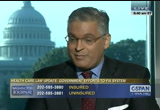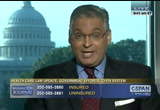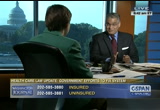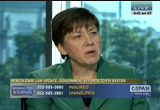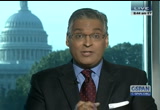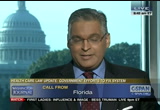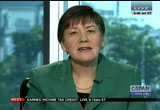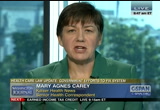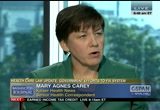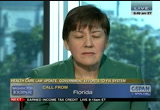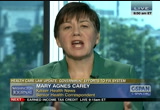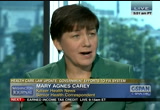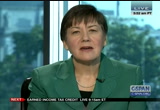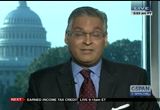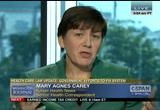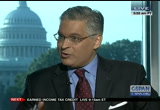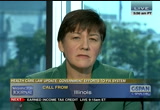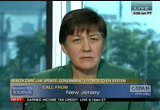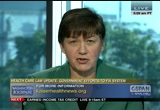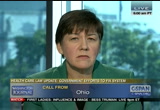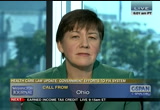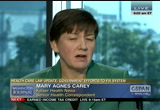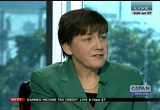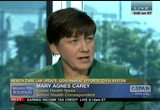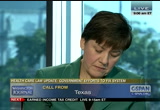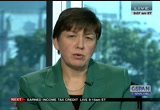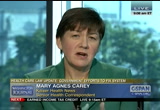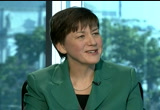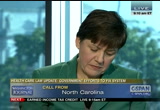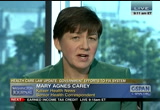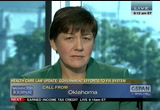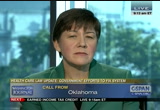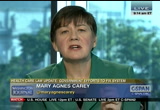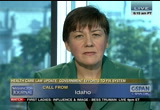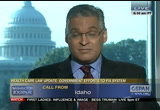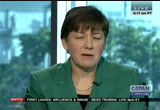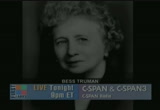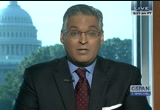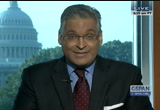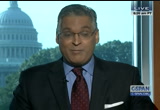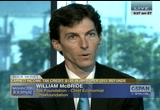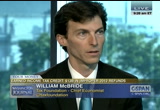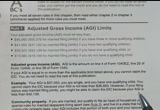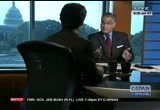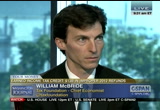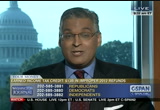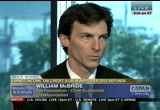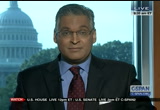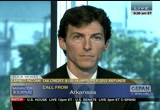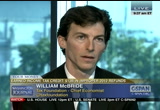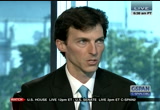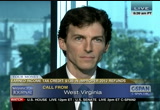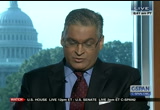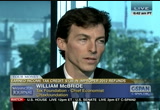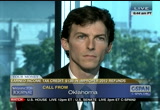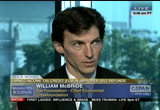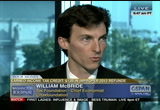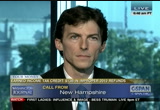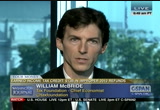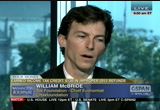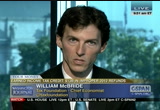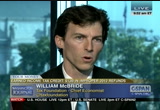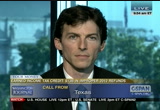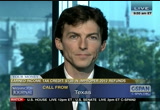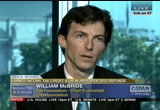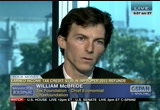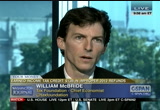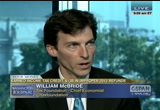tv Washington Journal CSPAN October 28, 2013 7:00am-10:01am EDT
7:00 am
and who is eligible for a refund. our guest is tax foundation chief economist william mcbride. "washington journal" is next. host: >> host: the white house is to eating -- is disputing claims. the u.s. ambassador to madrid will appear to discuss buying in the country after press reports that the nsa collected information on phone calls. chiefs from those and other countries are expected to travel to the u.s. to discuss those issues. this topic, even on the sunday talk shows yesterday. for our first 45 minutes, when
7:01 am
it comes to physically monitoring by the nsa on our allies, we want to get your thoughts on whether the u.s. should rethink spying on allies. here's how you can tell us this morning. you can also reach out to us on social media. you can always send us an e-mail to journal at c-span.org. stores today and yesterday stemming on new developments when it comes to monitoring of ally activity by the nsa. new about obama spying.
7:02 am
7:03 am
again, there are several stories this morning when it comes to the monitoring of allies. we are asking you this morning if the u.s. should rethink how it does those activities. if numbers on the screen -- you want to reach us via tweet and if you want to put something on a facebook page, that is facebook.com/c- span. it was on the sunday shows yesterday that this topic came
7:04 am
up heard one of the voices there, congressman peter king from new york. he is the chairman of the house subcommittee on counterterrorism and intelligence. he was on nbc's "meet the press" yesterday. he talked about the u.s. spying on france and germany. should stopdent apologizing and stop being. savedality is the nsa has thousands of lives, not just in the united states but in france and germany and throughout europe. have carried out spying operations against united states. as far as germany, that is where the hamburg plot began in which led to 9/11. they have had dealings with iran and iraq, north korea. the french and germans and other european countries, we are not doing this for the fun of it. this is to gather valuable intelligence which helps not just us, but also the europeans. let's start with the phones. this is derek, seattle, washington. caller: there are three issues i
7:05 am
would like to bring to the yawl's attention. all this program started up under george bush. president obama should've cleaned house. he should've brought some of these people to trial and charged them. the warrantless wiretapping and stuff would have been exposed. number two, none of these liberals, so-called liberal exposed all this wire illegal stuff that george bush was doing and president obama wouldn't have to deal with it or it number three, what you going to see is this is going to continue because these people are so mad and angry that we have a black resident that they are now willing to expose everything. none of this ever came out when he had a white president, but now all these things are so bad but they started up under bush. liberal democrats have really dropped the ball. actual activity of spying itself, where do you
7:06 am
stand on it? caller: everyone has been doing this. it has been happening. this is nothing new. these are not new revelations. president obama didn't know everything and everybody these people are listening to. do you approve of it or not? >> caller: these programs couldn't stop by now. host: ray from massachusetts on independent line. we're asking about whether the u.s. should rethink spying on allies. ray, thanks for calling. caller: i, how are you doing? host: fine thank you. caller: i think we should keep on spying. i really do. those countries have been doing it. if we didn't have a traitor like snowden, they wouldn't even know that we were spying. and they probably do know. the only reason that they know and their complaining is because
7:07 am
snowden is over there. in russia, they would've arrested his family and his relatives and everybody would've been in jail. they all spy. just because they haven't gotten caught, i say that's the only thing is these republicans want to jump all over the president. we have been spying, they have been spying him everybody in this whole world spies on each other. if we identify these folks as allies, what is the value of doing that towards allies? caller: are allies are spying on us ask commission mark udall think they are? the serious. fort cherry is next, pierce, florida. just like the gentleman .ho got off the line there you have to remember, this is america.
7:08 am
you have to keep the country safe. this is not about that one individual is about the whole nation. anything, not saying what are you worried about? are you worried about us catch and you try to do something bad? ago.ew this years things happen in this government that the american people really should know about to keep us safe. i'm not worried about somebody tapping my phone because i'm not current trend to kill a bunch of people are trying to do any nasty things to anybody. those before tapping in my phone conversation, they would turn it off, because i'm not talking about anything that is trying to hurt anybody. host: so we're talking about other countries and our allies specifically, so go ahead. caller: like the gentleman said, you don't think they want to know everything we are trying to do to them? they do to us and we should be
7:09 am
7:10 am
7:11 am
people that are supposedly our friends and allies to help lessen the supposed war on terror is a bit much. as regards to your very first caller, really? that's all you've got? i'm really getting tired of listening to that hurt obama needs to own this. he is doing it. he is doing it domestically. for those who think you have nothing to hide, with a mind if i came into the house and searched it? it is a bit much. it is not the point of whether they have something to hide or not, it is just wrong. walter joins us from baltimore, maryland, independent line. caller: that joke on the last call was the fact that we need intelligence. we don't need foolishness. that was absolute foolishness is statement of race or blaming bush. this is intelligence. we need to know things. a government is concerned, i concur with 20 her previous college who said look, tap my phone if you think i'm doing drugs or selling drugs
7:12 am
were trying to blow up the building in oklahoma city. we need intelligence. i don't think they should re- sync the program. with the should do is rethink the job that they give to these chumps. snowden was making $100,000 a year to betray his country. i hope they take his whole family over there because as her previous caller and another caller did say, his entire family would be in the gulags or whatever they have over there now. they are not allowing people to run roughshod like this tea party clown group that we have to just destroy our government. topic.alter, back to the what is a value of looking at our allies? talk about the economic challenges that are facing the euro, take for instance the dollar versus the euro versus the pound versus sterling. when we take a look at these intricacies of money and we have
7:13 am
to the greekg government on bond issues, right? we need to know that area different don't know that, by the time wall street finds out about it it is just like us in 2008. we are up the creek without a paddle. walter froms baltimore, maryland. here's mike murphy on twitter. jesse, west palm beach florida, democrats line. i agree totally with spying. we need to be protected. of course we got attacked by the .iddle east people luckily we were able to fight back. my personal opinion is we have too many spies already in our country spying on us. we have chinese, we have russians, we have cubans in miami.
7:14 am
we need to spy on these countries to know what is going on. you think that they are not spying on us e there been spying on us for the longest time. china spies on us, russia spies on us. france and england spy on us. the pick up on everything that we do. wouldwhat do think we learn by looking in our listing on our allies. those we claim stand by us e we should have some kind of conversation with if wend find out exactly can work together with them in an agreeable way and spy together in order to prevent further terrorism and things like that. that is how i feel. if i am wrong, then i'm wrong. host: the bbc posted couple of days ago saying that the head of foreign and domestic intelligence would hold talks of the white house and the national security agency according to a
7:15 am
government spokesperson. germany and france are they wanted to go to the u.s. to sign a no spy deal by the end of the year. the leaders have warned a lack of trust could harm the fight against terrorism as well as the merkel's phone was bugged. the nsa claims they have monitored millions of phone calls by both germany and france citizens. this is steve from windham, connecticut on the independent line. caller: i think general alexander should resign. gamedy who follows the spy ought to be able to read "the "the guardian," and
7:16 am
new york times." the spying isn't about germany or france. host: what you mean the spying is about ourselves? well, i as an american when i go to europe or to asia, i represent united states in a way, you know? i don't want to be known as the guy who sneaks into his wife's handbag. it is really about ourselves as a people. newspaper and the read what these people are doing? through mrs. to go merkel's handbag? host: that is steve from windham, connecticut, re- freezing our question from this morning. it said should be re-think spying a powerful friends? it also includes a snippet from the "boston globe" editorial.
7:17 am
you can comment on that, especially that last part as we go on this morning about our question and the way we phrased should the u.s. re-think spying on its allies? social media sites available to you as well. there are the numbers. several people commenting on twitter this morning. we would check the facebook agent little bit. here is jeff from knoxville, tennessee, independent line. jeff, good morning. caller: hey, good morning c- span. i just want make a brief comment. we are spying on everybody.
7:18 am
-- her we not say government spies on anyone at any time. that 300e finding out million of us are being spied on as well as the rest of the world. if you want to talk about foreign-policy, i have the democrats and republicans, it is not good. we need to take a step back, look at what we're doing and then make wise choices. thanks. chris from california is next. chris on our independent line. think this nsa program has been way out of line since it began during the bush administration where the american people find out about it. president in our past
7:19 am
history called nixon who is spying on a hotel and he was forced to resign. whether obama knew about this or not, he supposed to know this and if he did not know he should resign for lack of ability to do his job heard this is insane what we're doing. we are spying on every human being possible am a friend, foe, everything. example that we are sending to children. do think we can rebuild trust in this issue? inler: i think the trust this country has been down the tubes for the last 15 or 20 years. you can show many examples of that. thes not just the nsa, now tpp has been going on for years now. nobody in this country knows about it because nobody is doing her job as reporters. reporters have to start being the fourth branch of our government again. and reporting real news and not just miley cyrus. having realtart
7:20 am
reporters like we had back in the 70s. we don't have that anymore because we don't have a government anymore. it is a corporate government of the united states. we are not united states of america anymore. on the effortbeen about 20 minutes. we have had about a hundred plus responses on our facebook page you can feel free to add your thoughts on that as well. that is facebook.com/c-span. john, portland oregon, republican line. the president knows nothing about benghazi, he knows nothing about the website, he knows nothing about spying.
7:21 am
i mean, he is the president of the united states. just what is his job? he is supposed to know that stuff. president.eflon that's all i have to say. thoughts this morning on specifically the activity that is being reported on this morning, about us looking in on our allies echoed you agree with john, are you there? onto victoria. choose from florida on the republican line. caller: welcome to c-span, america. welcome to high-tech. in not only that, spying has been going on regardless of regardless of whether you are republican,
7:22 am
democrat or independent. spying has been going on for centuries. it is only because of all the information and communication that we have that we are spying on each other. it is not foreign to me. when i was living in the netherlands, spying was going on among the germans throughout europe. how do you think hitler got as so,as he did? host: victoria, what you think we get out of it? caller: the same thing the other nations are getting out of it. let's not get all upset about spying. we spy on each other's brothers and sisters in this country. jobnsa is doing a heckuva spying on people that come into overturntry and try to our constitution by coming over here and telling us what to do.
7:23 am
host: mike from fairfax station, virginia. caller: the reason i was calling his i feel we need to continue the level of spying that we currently have in this country. the debt is something that a that is something that the other callers have been saying. maybe what we should do in this take a look at how we handle the acc a, those spytries that we have no arrangement with third maybe this time to open it up to the other european countries. this whole thing boils down to the fact that if obama had a better foreign-policy, we wouldn't have this issue right now with snowden over there releasing all his information. relationshipser
7:24 am
with vladimir putin and all the other foreign leaders we wouldn't be in this situation right now. host: that is mike from fairfax station, virginia. theou have been following health care.gov story long enough you know that if you go to his front page, at least previously, on his front page would find a photo array smiling young woman. that has been changed. as of yesterday. in fact is highlighted on a story in the washington post is morning. sitee logging onto the sunday encountered a new homepage. it did not feature the brunette who's happy smile was a discordant note for people who ccess the site. if you were to go to health care.gov, and that is where you
7:25 am
would find some other changes as well. in theighlighted "washington post" story. bit moreou a little from that story from the "washington post" this morning, it was reported that an -- mary agnes carey from kaiser health will join us this morning. join us later for that discussion. that's go back to if u.s. should rethink spying on allies. this is california next.
7:26 am
we're going to hear from joe, independent line. high, joe. caller: high, how are you doing? i feel that anybody who spies on another person is creating an enemy. stop these spy agencies. we should dismantle them. startedl -- they were during world war ii. war inldn't have had vietnam, we shouldn't have attacked iraq. none of the stuff. we should go back to where we used to be before world war ii and leave all these other countries alone. anybody spying on us be ready to fight. joe, other people have said that other countries spy on us as well, why shouldn't we do the same? caller: if i had a friend despite emmie he just wouldn't be my friend anymore,. .
7:27 am
period. if everybody in the world spying on us than we should call everybody in the world are enemy. we can be independent of all these idiots. --do need to spy on anybody we don't need to spy on anybody. here's terry from memphis, tennessee, democrat line. is a game that everybody plays. i don't see what people are getting upset about the spying game. the only reason why people are getting mad at the united states is because we have the technology and they are jealous. if they're the same technology they would be doing the same thing to us.
7:28 am
most of the people and united states to claim this is a christian nation, than most christians need to surrender their life to god and they would need to worry about anything that were doing in the dark because it is going to come to the light anyway. host: so, terry, you don't think other countries have the technology just by and us as well? they have technology but they don't have what the united states has, that is why we are number one. " has a york times. follow-up on syria.
7:29 am
is on ourmaryland, he independent line from woodbine, maryland. hello. question, answer your first of all, i do agree with it or it to the government steered to us, we judge other governments. i think the people of the country, people of the united states, germany, france, the citizen would take it bad when they hear about it. the fact of the matter is that the government does it and we all know that they do it.
7:30 am
notbenefits to have it are always cloak and dagger back door kind of negative deals. there could be things along with military tactics, certain , anything that could really benefit us or our military our economy. the things we can pull out of their in that aspect. you have to think about what gaps are there that people no. it helps her descendents against other countries. just because countries like doesn'tare our friends mean you don't want to collect as much as possible. carson, california, democrats line. caller: i don't think we should rethink our technology and friends. them, our
7:31 am
as president reagan said, trust and verify. what you think is a benefit of looking in on allies? caller: because people change all the time. political seasons change, too. -- wast know which way her friend today may not be her friend tomorrow. have anything to be concerned about, i don't think they should be concerned about us buying because i'm sure they have spies on us, to. "the washington post." has a graphic in the paper.
7:32 am
here is valid from minneapolis, minnesota, independent line. i think it is an issue of trust, but i also think that the spying is about fear and the fear that we have with one another. with countries and individuals. it is everywhere. we talk about spying and a lot of people are for it and some people are against it, but i wonder why don't we just eliminated and just have all the information open?
7:33 am
why do we have spying anyways? even when a caller called earlier to make comment that whatever happens in the dark will come to the light. there's really the truth. we really can't keep anything secret anyways. individuals or countries. so why are we spending so many millions and billions of dollars are just like everyone is saying, foreign countries do it, there are companies that -- i wonder how much time and money we spent on spying when it really isn't necessary. choosejust stop it and to be more open and honest with one another. we're probably eliminate maybe almost all the problems we have in the world, you know what i'm saying? host: you said this is about fear. so this is about fear of allies as well? of course, absolutely.
7:34 am
there is an economic fear, there is technical -- people are afraid that is one country we have more technological advances then another country. i don't know whether those fears are real, but actually they're probably not real. how couldose fears -- a human or another country face- off. how can that be. now that that information is out there, what do you think the president should do? know if he's't playacting like he doesn't have power or he actually feels like he doesn't have power. i think of the president like nixon and bush, i can imagine an of these agencies, these government agencies, doing
7:35 am
things about the president giving his he a ornate. -- president obama acts like well, i don't want them to do it but they do it anyways. it is hard to figure him out, what he believes in and what he doesn't believe in and what he is doing and what he is not doing. you just can never tell. i understand when it comes to -- i don't know what he should do. i don't personally believe it is even necessary for human beings to be spying on one another. his can of ridiculously think about it. when are we to stand up and talk about what his personal beliefs and values are. maybe people would like it but is clearly integrity what is missing in our country right now right? host: that is valid from
7:36 am
minneapolis. our next is sandra from detroit. i think this by thing is really kind of ridiculous because they have been doing it forever. i am 61 years old and i remember on numerous occasions reading stuff like this in the paper, allies and everybody. stole my thunder by talking about it, but that is all i have to say. you can send as e-mail, too, if you want to. wj.twitter page is c-span if you want to, you can do so. does the patriot act give our government too much leeway
7:37 am
sam is up next. [captioning performed by national captioning institute] caller: for selective say that bright fella from georgia calls every day. bush gotwhen george caught intersecting calls going wereeas, democrats furious. all he talked about was the domestic spying. .eorge bush spying and now, obama has spied on our they are a bunch of hypocrites.
7:38 am
7:39 am
michael joining us from battle creek, michigan on the independent line. caller: i heard some seriously silly comments made by some of the callers. spyingem to disassociate in other countries and our spying back. spying has been going on since civilization began. there spied on each other to see where they were, what they were doing.
7:40 am
us.el has spied on we have caught their spies. we are broken up aspiring spirits china spies on us, japan's spies on us very is nothing new. then he had another caller tried to make it about democrats versus republican. it is not democrat versus republican. it is u.s. spying upon other countries in other countries spying upon the u.s.. have one guy who decided to sell the secrets or give our secrets out. if snowden is right in what he is doing. i don't agree with the way he did it. i don't like what he did. but we have countries spying on us --host: we think about the
7:41 am
u.s. is practice about spying and others including our allies? that's it i'm saying. we busted israel at least two or three times. host: but what about our practice? caller: i believe we have to protect ourselves. just because a country is our ally today doesn't mean they will be our ally tomorrow. stacey up next, cleveland, ohio. i agree with the gentleman who just spoke a lot but i think it is political. story after story is coming out -- these things have been going on forever. they are making it into something wrong, all of a sudden now. i think because obama is president. i think obama is doing a great job and we should just give him
7:42 am
a major break. the associated press reporting today that a spanish newspaper has published a document saying it says shows nsa spied on more than 60 million phone calls and pain in one month alone. afterport comes a week the paper explored similar allegations of you aspiring in germany. provided the site of former nsa contractor in -- edward snowden. of 2013, but not the content. caller: great job. a listen to every morning. i just came back from europe. i know it is going on over there. -- of the isu right
7:43 am
now, we are the most powerful country in the world are defined the president of the united states says two things i want to do. a nice dinner here and then let them know that we are not playing games with you because if you ever put a missile in my country, i will blow your head off and that is it. and it is done. you said that he just came back from overseas echo what part? caller: athens. any reactions as to how the story is playing out over there? caller: i was born there 50 years ago. .he people create the problem we keeping the same politicians back over and over again. because justts revises like everybody else, my god. give the other guy chance to get in there, to serve his country.
7:44 am
ray from loma linda california. he is on our independent line. caller: good morning, just briefly, as far as buying is concerned i think there's a number of issues to consider. , whicha matter of ethics we have seemed to run at a very low point in our country. is regarding spying on other nations. whether it has been going on or not is irrelevant. one thing that must certainly be -- to see the undercurrent which may have been visible for some time for any observer. peopleucated or ignorant and seem to run the nation make up a large part of the nation. that is evident in the poor use of language, understanding, history and all sorts of
7:45 am
matters. that is basically all have to say. make a program like this about what the u.s. is and what it has become. some german media have reported that the president didn't apologize to the chancellor when she called him on wednesday and told her that he would have stopped the bargaining happening had he known about it. the german newspaper they're setting a u.s. intelligence worker involved in nsa operations against merkel that the nsa chief, general keith alexander informed the president in person about 2010, obama didn't stop the operation back then, but he let it continue. there is no that discussion about any intention regarding the recording of the president.
7:46 am
caller: i just wanted to say this. i remember the ap story and member the ap story for reason. therems that every time is an ap story has been spying. i don't think we in this country particularly care about our government spying on people because they have been doing it for so long, especially under george bush and cheney. i think that govern he wow. where do want to say is this: i wish we could talk about jobs and how we are treating our kids in our schools now. i wish we could talk about something that's... evil really have something that we can do something with because i don't think this story right here does anything for our country because i don't think they're going to stop. why would they? stop. surely not can he's going to make sure we are
7:47 am
protected. we have republican party and their that means event to get everything out. it is almost like snowden is a president and he was held hostage in washington. i think that is so unfair. they talk about our country like this. host: that is came from columbus, ohio. that will be the last talkinopic that we take on. appearing before congress to talk about health care.gov third fmcsa hearing to join us tablet that another topics here on capitol hill. that will be coming up next later on. look at the other aspects of the health-care law. the new information on that as
7:48 am
7:49 am
huge restoration project to from thatits grander 1902. what you see today is what it would've looked like about a hundred years ago. >> along with discoverers of the gold the west, last chance gulch really was one of the major 1819 aries and some million dollars in currency was taken out of this place. it is a town where there was a lot of money. they say that there were more millionaires per capita here in helena than in any other place in the 1890s. there's never been proven. it is a legend. but it is a place where you can see the wealth that was poured into the community in the 1880s and 1890s. later in helena the nickname the queen city of the rockies because of that.
7:50 am
♪ >> spend this weekend exploring montana state capital. look at the history and literary life of helena. "washington journal" continues. host: we start with a discussion on the weekend congress. jennifer then three of the "huffington post" joins us. she also reports on congress as well. we are joined by neil of cq roll call. thank you both for coming on this morning. week thisd, a big
7:51 am
morning as far as agenda is concerned. the sub some of the high points. one of the things we're going to see his week that we haven't seen nearly enough of people might say it reminds you to conference committees start to convene at least. we have former meetings midweek of a joint house-senate conference committee on the budget resolution. trying to hammer out some survey deal. how much money will be spent going forward. we are also see farm bill conference kickoff. so that is another attempt for negotiators to get a deal done between the two chambers on the house and foreign committee programs. food and other benefits going forward. it is a long time since we have seen the conference process really work. both of these two conferences have been blocked from happening over the last several months. we will see how that goes.
7:52 am
the best one of the big items of the week. jennifer bender he, when it comes to these discussions, what are the main issues. >> it is the same old stuff. closeve democrats want to tax loopholes and go after the wealthy to try to bring in some new revenue. i'm curiouse how -- to see how this plays out. we've had -- we don't have conference meetings anymore. everyone just makes noise in the house floor and nothing happens. , kind of, to see things get back to the regular process because this is really how this post to work. fingers crossed for something more normal to happen, finally. do either of you expect anything . >> senatorom this
7:53 am
harry reid didn't interview with a local center in nevada. he said there be no grand bargain at this point. the chairman of the house budget committee gave last week the view that both sides are looking at a narrower agreement to hash out top line spending levels, to fund the government through the end of september of 2014 and not a whole lot else, at least in this round. to my view deal, but it is not going to be a deal that is going .o do much for us, really realistically speaking,
7:54 am
now that they're finally coming together they can tackle a smaller bargain and fund the until the end of september. you can have an appropriation shall process to refund the government until the end of the . the grand bargain talk would take farmer concessions, far more dragged out fiery debate. at this point we have artie has a much fighting in congress. host: both guests with us here until 8:30 to talk with us about these issues.
7:55 am
>> guest: it is so tense around here and so hostile on there is fighting the government was still closed. we almost defaulted on a debt. now that that is behind us i think there is at least hope in the president's wants to move this. right after this was all over, the president said look, congress, the student immigration bill and a farm bill . they dropped the mic and left. you can see the tone is changing somewhat and that the expert nations and hopes are changing because we just got passed a major showdown in congress heard maybe people are worn down and
7:56 am
actually ready to get something done. what do you think about this? the spending numbers that they're working off of so far different because the republicans in the house are working off a number that accounts for the sequester cuts happening. the democrats in the senate not so. as a result of that what you have is that they're looking for a sequester replacement. they're trying to find savings elsewhere in the budget now the savings can you be spending cuts or the closing of tax loopholes. these tax expenditures. either way, you're looking for ways to bridge the gap which is about $90 billion. but that might
7:57 am
be some way to find ground in the middle. host: our guests joining us for discussion this morning. let's start off with rich who is joining us from springfield, oregon on our democrats line. high, boy i am happy to just get in. i know congress has approval ratings that are way down there. i think they're talking about close friends and have approval for them. there are a couple of things i wanted clarified. it seems that they have been covered up. congress had that insight trading thing going on. it seemed like that just disappeared. i'm upset with congress and everything, it makes me want to bring that back up about having information on
7:58 am
things. the spine is going on these other countries, a lot of that is done in good humor. host: select comes back to congress specifically, what would you like them to tackle? like them told talk about insider trading. that came up in the news. wall, paschal chambers -- there's been a lot of consternation that that did not go necessarily as intended when it was an act. it is one of many topics that disappeared from the radar, frankly, because we have been dealing with these big-ticket budget issues. it is the thing that certainly did make a comeback to kimberly
7:59 am
in an election year. that is the kind of thing you summer as we approached them midterms in 2014. chris in alabama talks about the legislative date left in his home state. they have only so many days that they're going to be here. the bar has been raised since they got here. we have a budget conference any one of those moving this year would be huge. as the days pass by, there's less time to get anything done on these things. if anyone of those three things advances by the end of this year that is a huge win. host: here's james from chattanooga, republican line. caller: i'm from tennessee and i'd like to know if it would
8:00 am
lower the egos that some of these people in congress if they could just sit down and do a small appropriations bill. that is what i would like to know. i am not sure it would affect egos. or aan appropriations bill basic bill they are supposed to pass every year. thehey thaw some of tensions that have been brewing. if they could accomplish something together, i think you would start to see people maybe trusting each other more and maybe reaching out more and that would spread to other issues. the one thing i would caution would be the thought about the appropriations bill. we're likely to see a catch all appropriations bill that funds
8:01 am
all of the various departments all in one fell swoop. that itself is regular order. whataller is talking about would be perhaps better is if you could get back to a point where you go through the normal process of moving the bill, the labor education bill, the defense bill, move them all individually. there is not enough time when we talk about the calendar. there is not enough time to move all of the bills individually at this point. host: sarah from dover, pennsylvania. caller: good morning. i would like to change the subject a little bit if i can. i live on medicare. the medicare and food stamps --
8:02 am
$125 a week.g on if they take food stamps away --m me -- the [indiscernible] he needs to feeds us first before he feeds anyone else. have a place to live. our guys come home from the service. they are losing because they have no place to live. i would like to see that to happen, too. thank you. host: there is a story in politico. the headline talks about the farm bill that he gets no respect, referencing rodney dangerfield. why is this an important
8:03 am
discussion happening? guest: the last time we had a inm bill, that law expired 2008. what is it 2013? it has been five years since we had a new farm bill passed. the fact they are going into conference to sit down in both chambers, that is huge. that is something. he is chairman lucas, beside himself with joy that this is happening. this is a return to what this is supposed to look like. the caller is right. the bill that house republicans have for a farm bill would got food stamps by $39 billion. byther bill would cut up
8:04 am
$4.5 billion. huge difference. the foodstamp issue is the most hotly debated piece of the entire thing. >> both conference committees are set to resolve differences. how does that play out? guest: i do not know. i think that is the biggest question ultimately that will have to be resolved in order for the farm bill to move. you cannot see the senate democrats and perhaps some of the senate republicans agreeing to cuts in the foodstamp program that are anywhere near akin to what is in the house bill. so the question, here we go again. the question may come down to what happens if something comes out of the conference committee that is much closer to the
8:05 am
senate bill. speaker boehner, what do you do? the question of a bill that is put on the house floor. the house separated the food stamps from the farm bill portion and kept it separate. attempt thatas an was made by the house republicans to divide the farm bill from the nutrition programs, food stamps because this has been a marriage that has been going on for a long time. urbannnot necessarily get lawmakers, people in the house from democratic districts, inner cities, places where there are lots of interest in things like food stamps, school lunch programs to vote for the farm bill without these programs that
8:06 am
support their constituents because there are no vast cornfields in brooklyn. joiningels lesniewski us from roll call. jennifer bendery joining us from huffington post. carol is up next, hi. caller: the lady said earlier that when everything was over with, the president said ok, let's get back to business. let's pass the farm bill and this bill and that bill. i have been waiting a long time for the president to do something. i cannot see he has done nothing. he denies, denies. he doesn't know anything. he is like a child with his hand in the cookie jar. you want to find out what the
8:07 am
child is doing. know."ot know, i do not i am waiting for the president to do something. i just do not have any trust in him. guest: can you hear me? the presidentink should do right now to get something moving on these things? caller: at least talk. at least tell the people the truth. i do not think he has told the people the truth about anything. nothing. denye does is deny, deny, and put the blame game on everyone else. that does not get the ball rolling. stand up, be in charge. he is in charge. host: carol, thank you. jennifer bendery. sayt: there are some people
8:08 am
the president needs to lead. you can apply that to just about any issue. i think the president would say, i am leading and congress has a job to do. members of congress are elected to pass bills. the president's job is to look over the whole thing and make calls to members, have private meetings with members. here we are in late october and there are some big items on the agenda for the next couple of months that the president would like to see action on. i think it is going to come down to congress. what happens in the budget conference meeting? and on immigration, everybody is waiting in on that one. the president is calling for what he likes.
8:09 am
particularly in the next couple of months, it will come down to what members of congress have to work out. host: do you see the president standing back a little bit? guest: on immigration, the president has pulled back. he has been more removed on this issue than most issues. there are some real divides on that. makenvolvement my republicans back off the deal. i guess i would ask people what they think he should do. especially with immigration. you have people like marco rubio in the senate hoping to get through a broader bill and now he is backing off. he was kind of the face on this for many republicans. it is a constantly changing
8:10 am
issue and very sensitive. it is probably wise on the president's part to stand back on this. when what was the reaction immigration came back to the forefront? guest: i think people knew it had to come back to the forefront at some point in the coming days or weeks. it was not entirely clear it would come up at the moment the president brought it up. the house has yet to pass any immigration bill of any kind in this process. there has been some conflicting reporting about the intention of the house in the weeks ahead regarding immigration. there are some outside groups that do not want the house to pass any, immigration bill at bordern like a narrow
8:11 am
security bill because it might turn into what they would call stalking horse for a big deal that resembled what came out of the senate. how will be a big question, the vote counting in the house works. that is a recurring theme of this congress. host: what will we see, one bill, a series of smaller bills? guest: it sounds like it would be a series of smaller bills. they are taking a step by step approach. they would probably do a set of smaller bills. my guess is the senate would construe them all as being one big package, even if there are 10 bills. the senate would say, we are going to bundle those bills together. host: once it gets to committee
8:12 am
-- guest: we are back with the farm bill and budget and everything else. we could have the world of conference committees for the next few months. there could be some busy lawmakers. there are some people that will be on all of these conference committees. host: there are still hurdles to be jumped. let's go to barbara from missouri, democrats line. hi. caller: how do you know that congress has an agenda at all? they want to accuse the president and accuse, always pointing fingers. no mission to get anything accomplished. how do you know what agenda they might have? agenda going- is to continue to attack the aca?
8:13 am
guest: the continuing attacks on arethcare.go the affordable cat here to stay. abysmal.ut has been these glitches that keep popping up are ready fodder for republicans to criticize the law and for some democrats to have criticisms of the law. senate story with my colleague about what senator joe manchin has been up to, pushing a one-year delay of the penalties for not being able -- n ot getting health insurance through the exchanges. continue is going to and that is going to be up to the technical folk, the
8:14 am
contractors. the overlord has been brought in to get the website to work. to make sure that work so the criticisms largely turn out to be unfounded by the time january rolls around. was on theor shaheen show yesterday talking about the affordable care act. we will get you guys to react to what she said. [video clip] >> are number one goal is to make sure the website is working and to make sure millions of people who want to enroll in health insurance through the affordable care act can do that. there will be plenty of time to place blame on who was responsible for whether it should have worked on day one. but right now everybody's goal should be let's get this working. let's make sure people can get the health care they want and need. bet: secretary sebelius will
8:15 am
talking about these issues. what does she face? is going to face some tough questioning from republicans. laptop andll out a ask her to enroll in obamacare to see what kind of errors she runs across. it is a little immature to start calling for delaying things. it is late october. the administration clearly screwed up. the website is a mess. people are enrolling but there are so many problems with it. the federal government has to try to work harder in those states. tohink it is a little early declare a major catastrophe. the administration has until
8:16 am
mid-november to get this fixed on the website. host: that is three or four weeks. guest: they made some real mistakes. the website is a mess. they have time to fix it so in january they can get people actively enrolled. some are calling for sebelius to resign. "it is a disaster." these are the kinds of things republicans are declaring and putting out in all different forms of messaging. i think it is a little early to declare this a huge disaster. give it a few weeks. the white house is pointing out, everybody can still enroll. we have other options. you can enroll in person or by mail or call in. give it a few weeks.
8:17 am
website,rt from the what else do you think she will be questioned on? guest: there was a story in "the los angeles times" that talked costs are higher for some people who are trying to get policies through the obamacare than they had previously. we are going to see more of that. some of that is justifiable. coverageum essential is higher than was in the insurance policy that the person was carrying. but still, if you like what you have, you can keep it talking point is one that keeps coming back to bite the obama administration in a big way. it turns out not to be literally true, even if actual early it
8:18 am
may be true. people do not read actuarial table. host: here is chuck from florida. hi. caller: good morning. i would like to bring up social security. i see our politicians are not bring it up. my question is, how do we get social security back into the trust fund? the government has borrowed almost $4 trillion out of social security. that is 1/4 of the debt. nobody brings this up. broke security has been since they took it out of the trust fund, put it into the and put it in with the general tax dollars. host: any response?
8:19 am
guest: the social security situation we will see coming up is not the one that is related to how the dollars in social security are allocated in the trust fund. securityany social cutbacks, cost-of-living changes that comes up in any of these budget talks. i am citing senator reed from last week. senate democrats say that is not going to happen. cards in thef the -- deck options in have to deal with the budget woes. host: donald from maryland is up next. caller: i simply want to say the way things are going, the bureaucracy and the back-and- forth is only going to bring us 100% of thehere at
8:20 am
federal tax is going to be going straight to the interest on the debt and at that point the game is over. isould like to know what either of your guests personal opinion about what needs to happen in sequence and more immediately than later in order aboutgotiation to come from the back-and-forth. guest: i guess i would say that the fact that we are going into conference is a good sign. we have people in both sides talking about the possibility of passing something that could start to rein in the way we budget and that could address sequestration and get some of these numbers more in line with
8:21 am
how people would like to see them. a lot of this is going to be waiting and seeing what happens. this week is a big week. when the budget conference happens, when people walk out of it, it is not we are looking for them to have a deal. even just the way they talk about the meetings will give some signs about, are people ready to fix the budget process and fixing the way we address sequestration? host: back to health care. when the secretary appears before the committee, will should be grilled about how many people signed up? guest: absolutely. host: will we hear a number? guest: no. i'd do not think the administration wants to get into specifics. people want to hear numbers. it is been a few weeks since the
8:22 am
website launched. people want to know how many people are enrolling. glitchesoint given the and the problems we're seeing with the website, i do not think the administration wants to get in any specifics. they will say people are enrolling with a general idea and they are enrolling in other ways besides the website. there will be a lot of specific type questions that i do not think she will want to get into. host: not having a number? guest: she may have to give them something in the actual testimony or it would not surprise me if the committee did not get the answers the republicans were looking for if they came and tried to hit hhs with a subpoena a week after the hearing. that are different sticks
8:23 am
can be used in this case. the bigger question of how it is working. is it is never clear how many questions that the person testifying actually gets. so many members of congress have this habit of using up their entire allocated time giving a statement that there is little time for actually answering questions. in some ways that might be better for the administration. if there are fewer questions to be answered. host: sharing up next from florida -- sherry. caller: hi. the republicans are so hypocritical. the day this president took office and he was faced with the worst bush economy, the
8:24 am
republicans vowed to oppose everything that he did. for two years, they were very busy going to repeal obamacare 40 times. hammy times did republicans vote for the american jobs bill? no. to cannot leave this debt our children and grandchildren." a question citing jobs as an issue. is always what everybody says they are doing. it is particularly amusing in the house. they see the number one issue is jobs. there are nicely designed pamphlets and flyers they hold up in press conferences. you could talk about the jobs created by this congress and it is not good. it is not their priority.
8:25 am
there is a real disconnect. many polls show the americans want jobs. fightingbeen so much and so much ideological fighting over obamacare. we have had 42, 43 house votes defundrepeal it, gut it, it. the process to create jobs has taken a side stage for now. askedthe president had congress to pass the jobs bill several times. guest: a few weeks ago i was talking to senator lindsey graham and he sort of unexpectedly to me and some other reporters throughout the possibility of a big budget deal including some infrastructure spending, providing there was
8:26 am
offset to pay for with some kind of entitlement tweak.or a tax code that surprised me a little bit. one thing that comes up over and over are these chronic infrastructure problems and that is one thing that really is by most people's standards of federal responsibility, to of functioning ports and roads and that is something that correct could -- and that is something that could create jobs. maybe they'll be some infrastructure spending. guest: i am surprised senator instagram brought that up. --center lindsey graham brought that up. it creates jobs and economists agree one of the first things
8:27 am
you can do to create jobs, pass a bill that fixes our broken bridges and roads. that puts construction workers back to work. it is a well-known common, popular topic when it comes to job creation. the fact that lindsay graham mentioned that, that is noteworthy. host: rachel from chicago, illinois. caller: good morning. i was hoping you could lay out for me the issues in the farm bill and let me know which issued you think the republicans and democrats can agree upon and get something done and which issues like the a bit more difficult. host: i will let both of you weigh host: neils, if you want to go
8:28 am
first. the foodstamp issue will be the largest issue. and i doa disagreement not have all the specifics on the top of my head. i know there is a big issue that has to be worked out related to benefits fores and dairy farmers are calculated because speaker john boehner has been against some changes to the milk program that had been favored by democrats. that has been pushed by senator patrick leahy of vermont as well as collin peterson, the ranking democrat on the house committee. there are all sorts of thorny
8:29 am
issues related to how you change payment rates for various crops. how the new crop insurance program will work. the farm bill is interesting because so much is regionally driven. whatour producers are and their crops are. the kind people versus the people who produced corn, soybeans versus those who produce specialty crops, which are not always special. they are things you would buy in a grocery store. there are things that need to be worked out and you do not know how the final deal will look. guest: the thing that stands out to me is the foodstamp fight. it is such a huge cut in the house bill. $39 billion. $5n you compare that to the
8:30 am
billion in the senate democrats bill. that alone is -- this is a huge bill. that issue really stands out from a as particularly egregious. is a lotknow -- there of things going on in this bill. giving subsidies to farmers -- it is like $5 billion a year in subsidies. they go to farmers who make -- i wish i knew more specifics. a subsidy for farmers who make more than $750,000. i am surprised that we even do this. there are big subsidies every year for farmers who are doing very well and those are tucked in their and protected by the
8:31 am
house republicans in the bill while they tried to gut the foodstamp bill. that is a shocking comparison. that is where they are putting their priorities. host: we will take one more call. martin from michigan. good morning. caller: thank you for taking my call.. i wanted to ask a couple of questions. the health care bill will fall on its face. i think it is a great idea to everybody.nsure we are getting numbers of people being dropped off their insurance but cannot find how many people are enrolling in this obamacare. i would think the st. jude's foundation has the best model of the country. they take anybody with a pre- existing condition, one hospital
8:32 am
that facilitates over one million people, which is just incredible. that kind of program would work. i would say obama winning the presidency was an argument is as ridiculous as to say george bush's election for the second time was a mandate that we wanted more ridiculous wars. host: there is a story from fred upton. he said the committee had a high profile hearing on thursday with contractors. this week the hearing with the secretary -- host: what does that suggest to
8:33 am
you? guest: that portends that the house may be looking at taking something akin to what has been floated by marco rubio or joe manchin in the senate to delay the individual mandate. it would not surprise me to see the house of do that at some point in the weeks ahead, particularly if they move in the weeks before thanksgiving. at that point even the administration does not expect the website to be working right just yet. guest: i think that is probably fair to say. there been a faction of people rushing in a delay. i think the fact that the website is having so many problems, it just fuels this debate that has been out there for so long. "hey, that's right.
8:34 am
we should delay this. we have a website that is a mess." people in themore last few weeks who suggested maybe we should do that if things keep going at the rate they are going. host: that is a look at congress this week with our guest, jennifer bendery and niels lesniewski. thank you. we will keep discussing health care, pacific league problems with the healthcare.gov website. our guest mary agnes carey for that discussion. later, the irs sent out tax credits but nearly a quarter of them should've never been sent. for that discussion will mcbride will join us. but first an update on news from c-span radio.
8:35 am
and, thehe white house president attends a new ceremony for james comey and later meets with john kerry at the white house. the house meets at noon for morning our, 2:00 for legislative business. the senate comes in at 2:00 p.m. eastern. live coverage on c-span2. a u.s. citizen kidnapped months ago in columbia. the rebels have turned over the 26-year-old to u.s. government representatives at the airport. he had been in the country as a tourist when he was taken hostage on june 20 by the revolutionary armed forces of colombia. israeli aircraft bombed two rn gaza in the northe
8:36 am
strip today. say aty officials training ground of the armed wing was struck north of gaza city. the palestinians say is the first is really airstrike in about a year. those are some of the latest headlines on c-span radio. over 100 wireless carriers in the u.s. year normalbe household names but in the area they serve, they are important. they are community-based. we have 100 carriers and some outside the united states. we service almost 200 associate members. they make up the ecosystem that supports wireless carriers. >> the future of small wireless
8:37 am
carriers, tonight at 8:00 p.m. eastern on c-span2. >> c-span. we bring public affairs events from washington directly to you, putting you in the room at congressional hearings, white house events, briefings, and conferences, and offering complete gavel-to-gavel coverage of the u.s. house, all as a public service of private industry. we're c-span, created by the cable tv industry 34 years ago and funded by your local cable or satellite provider. and now, you can watch us in h.d. >> "washington journal" continues. to talkining us now about health care is our weekly segment with kaiser health news. mary agnes carey serves as a senior health correspondent. welcome.
8:38 am
what is the latest that we know about the condition of the website? guest: is subcontractor had an outage last night that is effective the health care website. it was still down this morning. that is another woe. there was a congressional hearing last week in the house where key contractors talked about how they have recommended more testing earlier and that was not done. officials decided to turn off a browsing function require people to make accounts. that created a backlog. there's been a lot of attention focused on the website. host: people were unable to use the website at all? guest: you get to the homepage. i have not been able to set up an account. i got a message the site was down. host: the smiling girl on the website is missing as well.
8:39 am
guest: she is gone and was replaced with more information about what to do if you cannot get on the website. you can print out an application and submit it. there have been stories about how people on the 800 number are having a problem getting to the website to put in their information. they are trying to make it clear there are many ways to apply. they are working as hard as they can to fix the site. changes ofmade even who is taking control. what is the role and talk about what goes on as far as his role with the website? guest: he is well known to the white house. he twice wasn't acting member of the office of managing and budget. he was born in to something called cash for clunkers.
8:40 am
people were offered financial incentives to buy a more energy conscious car. they have elevated the status of a contractor that was part of the program. they will now be the chief contractor to do that. that is the quality software services. they were part of the project. why would you elevate them? newthought to bring a contractor would be hard to do. let's go with this company. they are known for the federal data hub. that is one of the pieces that has been working. is a lot of blame to go around. it became a blame game. the contractors were blaming
8:41 am
each other. members were trying to get more specific information about what happened when. it was a window into what is ongoing. this week marilyn tavener will appear tomorrow. kathleen sibelius will be in front of energy and commerce on wednesday. so this picture of the story continues to unfold. you intoant to invite the conversation with mary agnes carey. weyou want to ask questions, have divided lines into two lines. if you're among the insurers, 202-585-3880. if you find yourself uninsured, 202-585-3881. pick a line which best represents you. you can also tweet at
8:42 am
http://twitter.com/cspanwj. what do we expect to hear from the secretary, sebelius? guest: you can't expect a lot of follow-ups. what specific steps did you take? what was the white house's involvement? you can now go on to the site and look at rates without creating an account. you can give them more information about qualifying for the medicaid expansion. it was slightly reduce the sticker shock that you would see on the browsing feature. host: hasn't been any indication on how she might respond? guest: she and other officials have been very open that they should have tested more and tested earlier. other officials have done that.
8:43 am
they will acknowledge what they have done wrong. they are talking about what they are trying to do now. they have a heightened sense of awareness that this has to be done. if you want coverage to start january 1, you need to be enrolled by december 15. that will help people make that deadline. athink people are getting little nervous about the timeline. there are problems happening with that. host: joe manchin talked about maybe a delay. guest: jeanne shaheen has talked about increasing the time for the enrollment period. 31.t now able and on march joe manchin is talking about delaying the mandate and penalty
8:44 am
for a year. joe manchin is working with a republican on the individual mandate delay. this is not where the ministration wants to be with the conversation. host: who expects the november deadline will be met? guest: i would say there is a healthy amount of skepticism. many of these same officials said we will be ready to go on october 1. lots of things have happened. "we didn't anticipate we would have so many people on the site." insured.s is dana, good morning. caller: i would like to see some consideration by the administration looking into the
8:45 am
thousands of and that it bush political operatives -- embedded bush operatives that opted to become federal employees at the time that bush administration ended. i have not heard anything indicating that over the last six or seven years. an after was made to identify potential individuals working in the executive branch that may in oft impede the operations for the purpose of political ends and not for the good of the people. host: why is it important to you? caller: many years ago i learned
8:46 am
from it may have been c-span, b ut i learn that tens of thousands of bush people that were put into various executive theches to make surre that policies of the bush administration were being followed by employees in the executive branch. guest: i have not heard that at all and i find it interesting. i will keep my ears open, thank you. host: this is my gold from new jersey, uninsured -- this is michael. michael, good morning. caller: good morning. everything -- because generally he is --
8:47 am
host: let's go on to gary who is insured. caller: good morning. my understanding is there were insurance companies involved in writing the obamacare policies. if that is true, they lean towards policy that we more advantageous for them. guest: insurance companies did give their input to capitol hill is every sector, whether it an insurance company or hospital, would want this law to work out well for them. there is no doubt they have lobbied to get provisions they liked and disliked. congress takes all that information and create the law as they see fit. i do not want to say industries do not influence it. they will get a lot of new
8:48 am
customers as part of the creation of the affordable care act. they do not like some of the new fees and taxes on their industry. there is probably a next bag for a lot of companies involved in health care. host: there was a story by "the lost angeles times." some of their health insurance is going to get pricier. companies insurance changing their policies for members because of the affordable care act? guest: let's talk about what is happening in the individual markets. there are policies that may not offer the same comprehensiveness of coverage that the affordable care act has. it covers maternity care and hospitalization and so one.
8:49 am
they are getting noticed that the current policy will not meet the federal standards. this story has gone a lot of attention in the press this week. this coverage is no longer adequate. you can enroll in a different policy. you may pay more or less for your coverage. this is something that is upsetting to people who like the policy they had. host: jane up next from tampa, florida, uninsured. caller: good morning. aca,e not applied for the but my son did and he didn't have a problem with it. why it isnderstand such a problem for people to say ort the aca is crashing
8:50 am
whatever. a time you apply for food stamps or medicare, you have to wait for it. anybody that applies for those things know that. there is a long. of time and i do not understand why it is such a big deal. guest: congratulations to your son. that is great he got through to apply. i understand the point you're making for other americans. there is a period of time where you need to wait. key elements suggest the affordable care act up and running and to spread the risk is to get a lot of young, healthy people into the system. if you need health care coverage, you're going to hang in there on healthcare.gov until you can get the coverage locked
8:51 am
down. for others who may be on the fence about, do i need this, is a cheaper for me to pay the penalty, the concern is they might get frustrated and not persevere to sign up for health care coverage. -- anthere is a sign in times" in "the new york about that. guest: we are at the beginning of the six-month enrollment period. you can enroll through march 31 and you will not pay a penalty. we are washington, focused on this. you do have a six-month enrollment period. where are we going to be in the middle of january or february or
8:52 am
march? i cannot answer that. they cannot get that up by the end of november, they are going to have more difficulties, especially for those folks who want coverage beginning january 1. guest: as part of the reinvigorated effort to fix these problems, there is a tech surge. they are bringing experts on board. tonya,etroit, michigan, insurance line, hello. caller: hi. i just think it is so funny. what did people do before you had a computer? guest: we asked that all the time. caller: there are other ways you
8:53 am
can sign up for this law instead of a website. this is ridiculous. i just think it is funny. host: one of the things they are wereg is the phone lines assigned for guidance. guest: some of the phone operators are having a hard time working through the system. there is a separate contractor to sign up with a paper application. they may have some volume if they may have some problems if that violent increases. to get 7 million people into the exchanges, you need to have a computerized. host: don from pennsylvania, good morning. caller: hello? republicans are against all this.
8:54 am
if somebody knows about computers, how do you know they are not doing that to make it harder? they are willing to do anything and that is the tea party, ted cruz and all of them. guest: in the early days of the launch, there was some concern sabotage? there were there forces trying to do what the caller is talking about, hacking? that has been ruled out. most of it was due to incredible demand that they do not anticipate. and without lots of testing ahead of time. became morekinks clear when the site went live. that is how they have explained it. republicans on capitol hill
8:55 am
disliked the health law. that is why the hearings this week are going to be republican control panels and will be focused a lot on what the administration knew, when did they know it, what steps will they take? they will try to establish a line of accountability. they are trying to provide oversight to the health law. they also never wanted to happen in the first place and they oppose it. host: the ways and means committee meets tomorrow with marilyn tavener. then kathleen sibelius on wednesday. what do we expect to hear from administrator tavener? guest: she will explain how cms view the rollout. she may not get into the nitty-
8:56 am
gritty of how they made certain decisions. i think those members will have all of the evidence that they have heard and you had republicans on the house and senate asked for additional data. i think she'll get questions about the setup and the operation of the site. host: john on our uninsured line. caller: good morning. i am actually 49 years old and disabled on medicare. i have two children still living at home and they work part time and go to college. until they were 19, they were on medicaid and they were knocked off. when they go to apply for insurance, will they be applying incomer self, their own or will they have to apply with the whole family income to see
8:57 am
if they're eligible for anything? guest: are they dependence on your tax return? they are.: yes, guest: it would be your incomeguest:. host: there is a story about medicaid in "the wall street journal." host: medicaid is part of the affordable care act. -- t: medicaid is a state federal and state health insurance for the poor and disabled. it was optional for people up to
8:58 am
$16,000. 100% andnment picks up the tapers down to 90% thereafter. it is part of the expansion and aimed at childless adults, many of whom in states could not have qualified for medicaid before. the: pat from new jersey on insured line. caller: thank you very much for your show. i have been trying to ask this question for quite possibly two weeks. possibly you could answer the question for me. i am 62 and disabled and have been for eight years. i am on medicare. ok? because of my salary and income before the accident.
8:59 am
there anrry through aarp policy underwritten by noted health care -- by united health care. do i have to go through all this iain or am i just to keep up have? guest: kaiser health news is not affiliated with kaiser permanente. you mentioned supplemental insurance being offered, i wanted to clear that up. you do not have to do a thing. you are on medicare. you have your supplemental. you are fine. if you wanted to change your enrollment within medicare, change your policy, you could do that during medicare's enrollment period. as far as the affordable care act, you don't have to do anything. steve is from dayton,
9:00 am
ohio, on the uninsured line. year ati retired last 63. an income of about $1800 a month. i am not on medicare because i am not old enough. got was $1300i just to cover -- i cannot afford it because i don't have enough income. i cannot work full-time for insurance -- the social security benefit. we didying to make ends i went to the exchange to verify a series ofnd after attempts a lady said she would send me an manual application to fill out and return. as far as i know, my insurance would cost me about 75% of my total income, which means i could not afford to live, so
9:01 am
obviously i can't afford the insurance. host: what was the rate that you saw on healthcare.gov? i am assuming the 75% is the earlier rate use all. caller: the website did not work for me. i went on the first day about 10 minutes after it opened. about seven or eight times differently. i got a registration in and then that said imails was register but there was a problem that came up saying it cannot register me at the time. i waited and i open the e-mail onto breeding them and it said click on this link to see if you're registered. then it said the link had expired. i went back and reregistered all over. the registration page -- when you try to put in the password, that is what really does not work very well. i would type one character like a, and it will put in six. i started timing it, but he stroke, and i would delete the extra one that i finally got it
9:02 am
accepted again. the registration page, it said it could not register me at this time. then i called the number and the lady said she would send application. times, and it eight i still have not gotten exactly registered, but i am getting a manual application. quotedon't know if the will go down, but my thought is i doubt it will. host: you have not been tempted to use the website again. have you? caller: i haven't since two days ago. they said they were going to just send me the application in the mail. i said, could i ask it or something? they said, just ill out the form. you have to have your income down. i worked hard time. with my social security and stuff, i have about $1800 a month in income. work part time so
9:03 am
probably another seven or 8000, so my income will be somewhere 25,000-27,000. level, youat income should qualify for some financial assistance or help with premiums. the health law, you can buy a variety of policies. you can get a policy that has lower deductible but higher out- of-pocket copayments and so on. you can get a more generous policy with a higher premium but fewer out-of-pocket cost. you have to look at it. but for that income level, you should get help with your premium subsidy, and you should also get assistance on your cost-sharing. and deductibles. obviously the experience he described is one that thousands have had. it has been incredibly frustrating for them. this is what federal officials say they are focused on any are trying to correct. host: have you seen the number of how many signed up?
9:04 am
guest: we do not have a number of how many enrolled. that'll officials said -- in numberficials said has completed the applications. healthcare.gov in effect is running the exchanges and about 36 states. 14 states and the district of columbia doing their own exchanges. for the states and the district, there have been some reports of problems and so on and some are still persisting, but you can imagine a state-run exchange is just not going to have the problems or volume of a healthcare.gov. host: when do you expect to hear numbers? guest: mid-november and monthly. host: we ask the premium panel of whether you think kathleen sebelius are marilyn tavenner will get a hint of numbers this week during their hearings. guest: they certainly might. but i just don't know if they know at this point. host: taxes that you should know -- texas, you should know the insurance market place --
9:05 am
assignment began october 1. coverage will begin january 1, 2004, and consumers will have 31, 2014 late as march without a penalty, that is a change. guest: here is how it works previously. you always had to be enrolled by march 31. but because coverage starts at the first of the month for most health care coverage, in effect, you had to have a complete application by february 15 to have coverage by march 1 so you would hit the march 31 covers period. they are saying in effect you have another six weeks to apply for health insurance. but keep in mind, let's say you apply -- rather, apply for health insurance and not face a penalty. let's say you march -- wait until march 28 to apply, you will not get hit with a penalty but you probably will not have coverage until probably may 1. the longer you wait to apply, the longer it will be before you get coverage. host: what is the penalty?
9:06 am
2014 comeividuals in and $95 a one percent of income or whatever is greater. it increases. -- 2.5%is two percent of income or $700. host: marey agnes carey. -- fromp next on taxes texas. caller: i am in short. in short on my wife's policy. when it came time to re-up at the end of 2012, the insurance company that we were covered under, which was united, they upped their premiums by more than 100%. so, we went with a different company. that really concerned me to the currently employers -- the employer mandate is waived for a year.
9:07 am
haven't really heard a whole lot of discussion on this, and i would like to hear some. and that is in regards to what happens to the system when the employer mandate waiver expires. will we expect to see those of theho are employed, premiums with the companies we have, what those premiums go up emands and needs and regulations and so forth? guest: this is a concern that has been expressed, and as you know, the employer mandate has been delayed for a year. for people who don't know what it is, most employers who have 50 or more workers have to offer coverage or pay a fine. that, again, postponed from january 1, 2014 to 2015. employers are looking at this and making decisions. a lot depends on what plans offered on the exchanges, how much do they cost, and looking
9:08 am
at what that does to their rates. another thing to note is that if you don't offer coverage and you employee who goes out and get a subsidy and get coverage of the exchanges, then that is part of the process where they are doing the calculation on the fine. so, your point about how businesses are going to behave, i don't think anybody knows. but it is a concern when employers simply say it is cheaper for me to pay the fine and let people to go into the exchanges. will they give the money to go into the exchanges and is that allowed? will employers decide i will keep my own health care plan for my workers and if they qualify to go into the small business exchange, do they go to the exchange and get coverage? i don't think anybody knows but there is concern about what it will do to premium, will it increase them. the coverage will be more comprehensive than a lot of people have. essential benefits before. also things like no lifetime
9:09 am
limits on your coverage. starting in january, no annual limits. things that many, many people liked it about the open question is what does it do with premiums, how the consumers react to it especially the consumers who will not get a subsidy, how will they react and how do employers with question mark host: a follow-up -- or at least this was posted 8:45. a data center critical to allow uninsured americans -- affecting the already problem plagued the market. the obama administration and company officials could not say how long it would take to fix the connectivity problem. this was posted at 8:45 a.m. this morning. guest: another headache. host: can anyone spell out the problems are a, b, and see. guest: you look at a variety of problems. for example, the recent caller
9:10 am
talked about these things. he had a problem creating an account. he creates an account and then cannot get in. they be somebody can get into the account but cannot complete the application. butaybe somebody can get in cannot complete application. maybe inaccurate information about subsidies they may or may not qualify for. of it is a whole host problems. host: here is mary and she joins us from north carolina. she is uninsured. hi. guest: good morning. i believe north carolina has opted out of the medicaid expansion. in the past, my children qualify for medicaid. currently i am working in a job that puts me just above the poverty level. the amount i would have to pay to purchase the insurance would drop my income below the poverty level. is there a federal insurance similar to medicare or medicaid that can cross the borders of states that have opted out of that expansion in order for us to purchase insurance that will
9:11 am
not drop us below the poverty level? guest: if your income is above the poverty level -- and 100% of poverty for an individual is about $11,500 and for a family of four, it is around $45,000 or so. up to 400% of the poverty line, that last figure. if you are above the poverty line, you should be able to get a subsidy to purchase coverage on the health insurance exchange. this is one of the interesting things about the health law. if you are below 100% of poverty and you live in a state that does not take the medicaid expansion, you are below 100% of poverty, you can't get a subsidy to buy on the exchange rate in your case it sounds like you may be able to get it and purchase on the exchange. but on the second part of what do you do if you cannot get a subsidy,, your state is not expanding medicaid, you are left behind. the backers of the health law never intended to happen.
9:12 am
but when the supreme court said the medicaid expansion is optional, it created a problem because right now half of the states are not expanding medicaid. host: oklahoma on the insured line. caller: i was just going to ask mary a question. you know, if she knows anything about this here. part j. a, b, d, and i just wonder if they are going to mess any of this up right here. because i had to wait a year. i retired when i was 62. i had to wait a year without insurance because i had pre- existing conditions. them insurance companies and everything and they would not ensure me. anyway, i just rolled the dice and waited a year. i just wondered now -- a;; this here, pretty good. because i have had open heart surgery and part j paid
9:13 am
everything. you know, it pays everything. medicare does not pay. so, anyway, i just wonder if they are going to -- they went up a little bit. but i don't care for that. because open heart would have cost me a whole bunch. but anyway, i just wonder if they are going to knock all this here in the head. the other thing i believe, mary, is, i believe that a lot of them pre-existing conditions is jumping on the bandwagon is what i would have done if i was early -- young. if it were to come out, i would have jumped on it a long time existingut them pre- conditions. but i just wonder if they are going to knock my insurance, because i like what i've got. guest: talking about medicare. inmentioned parts a and d
9:14 am
the supplemental coverage covering his out-of-pocket costs for his heart surgery. the answer is, no. the affordable care act does not tinker with medicare's coverage. it does not change parts a or b. you don't have to do anything. you don't have to take action. the health-care law does make some payment changes to medicare providers that have been documented. it does take some money away from providers. there is the argument the providers can withstand the cuts. some came to the table when health care was being negotiated and said we will agree to this more peoplen get coverage uninsured. your point about pre-existing conditions, this is something you cannot be discriminated against for in the health car. -- in the law. they cannot say you have a health problem, either cover the problem or not cover you, period. they cannot declined coverage based on pre-existing conditions. the earlier questions about costs and what it does for employer coverage covering all of these things, that is the
9:15 am
question -- what does it do to help insurance cost? there is a lot of preventive care and the health-care law but it should just be a small increase in premiums and it really should not affect how much you pay. but this is an ongoing thing people are watching. host: who defined a pre-existing condition and what is defined as one? is a great question because it seems like it is a moving target. we have heard tories for years about people with minor conditions, a sinus infection, and be told we will not cover that are not cover you at all. but for now with the health law, it goes away. host: gerald from idaho. caller: how are you doing? i have a question about the penalties you guys are going to charge of uninsured people that refuse to get insurance. why are you guys forcing us to pay? guest: he is aiming this at washington, at congress that voted for the health-care law. the thought is to keep the
9:16 am
premiums affordable you need to spread the risk. so, you need to get everyone in the system. because, in effect, if somebody is uninsured, you go to the hospital, there is a federal law that requires these people must be treated. they must be stabilized year did -- a stabilized. but it helps to raise people for other people. the thought is, you get everybody in the risk. if you don't have an individual mandate and if you don't have a fine that people will not get an rolled and only the sickest people will step up. as the caller notes -- and there is strong objections to the individual penalty. a lot of people don't like it. it has been very unpopular. but nonetheless, proponents say this is what you need to do to get everyone. host: do you plan to get insurance even if you are fine? caller: absolutely not. i will not be forced to pay for somebody else's problem. guest: do you have health insurance, sir? not.r: no, i do every time i go to the doctor, which is four times a year to
9:17 am
get annual checkups or physicals, i pay out of my own pocket and i do it freely. age? what is your caller: i am 31. guest: you can certainly pay the penalty. or can pay for one a 14, 95% one percent of income. host: james on the insured line. caller: how are you doing? it interesting that it seems like 15 days of government shutdown would cause a little bit of slowdown on this website. it is also interesting that the republicans were so against this before, but now they want the website to work so that everyone will have health care. -- whathis is a thought you have advanced, i heard democrats at the same thing. why are republicans so concerned or worried or spending so much time trying to make sure a website works in a law that they have hated from the very start.
9:18 am
that is certainly one line of thinking. the other part of that thinking from a republican point of view is, what the law, we don't like it, but now it is up and running we are just trying to do our job of oversight to make sure it works for america. you can decide for yourself on those two sides. host: a lot of activity this in theout the website program overall. what are you going to pay most attention to? guest: i am going to those hearings. i think it is really important to seeing people at the top saying what they knew, when they knew it, what actions they will take, and we will look into that and figure out where it goes. with marey agnes carey kaiser health news, their senior correspondent following the affordable care act. thank you so much. coming up, the weekly your money segment. we will look at her team billion dollars of tax credits to working families that should have never been sent. our discussion will take place with william mcbride of the tax foundation. but first, an update from c-span radio. international news
9:19 am
this hour. news of the world of phone hacking, the trial has just begun in the u.k. and jury selection is underway. former editors rebecca brooks and andy colson along with several others are on trial for phone hacking and bribing officials while at the now closed rupert murdoch tabloid. isnwhile, southern britain being battered with a powerful storm with hurricane force wind causing widescreen inlays on the nation's roads and trains and threatening severe disruption that the airport. one person is feared dead. published awspaper document today that shows the u.s. national security agency spied on more than 60 million phone calls and stayed -- in spain and one month alone. every wart comesl a week after reported similar allegations in france and german magazine "der spiegel" reported
9:20 am
a document shows the chancellor's mobile phones were hacked. provided by edward snowden so the nsa monitoring the phone calls from december 10, 2012 until january 8 of 2013. but not there content. the chief of the u.s. spy agency has not discussed the alleged bugging of german chancellor merkel's phones with president obama, according to officials. while white house and secretary jay carney hold a briefing today scheduled at 12:45 p.m. eastern time, he is expected to get questions on the subject. those are some of the latest headlines on c-span radio. of bess wallace and harry truman began here in her home in independence, missouri. >> when my grandfather visited independents, 26 miles from where he lived at the time, 1910, he often stayed across the street at the nolan house where his aunt and two cousins lived. one afternoon he was over there
9:21 am
with his cousins, with the family, and his aunt brought in a cake plate that my great- wallace hadmadge given her a cake and mrs. nolan had cleaned the cake plate and was asking if anybody would take it back over. and my grandfather, moved with what my mother once described as something approaching the speed of light, grabbed the cake plate and ran over here and rang the bell on the front door in the hope, of course, that my grandmother would answer the door, and she did. and she invited him in. and that is the beginning of their formal courtship in 1910. as we continue our series on first ladies. tonight at 9:00 eastern on c- span and c-span3 and also c-span radio and www.c-span.org. >> "washington journal" continues. host: every monday at this time is our weekly "your money" segment and we will focus on a
9:22 am
program that offers a tax credit to low-income working families. call the earned income tax credit. the segment, you should know, was prompted in a sense by a report that came from the inspector general office of the treasury department, specifically looking at the program. to talk about the report and findings, joining us on the michael, with the treasury inspector general for tax administration and serves as the deputy ig for audits. thank you for joining us. me.t: thank you for having host: just to give a little explanation. this report that looks at the earned income tax credit, what was the intent? guest: the executive order requires us to review the irs's progress in reducing improper payments. we do this report annually. the irs reports to us and within 100 and 20 days we issue the report and it assesses their actions to reduce it. the earned income tax credit is really the largest program it
9:23 am
has where they make payments to taxpayers. and that is the program that we assess. host: specifically it looked at tax credits put out in 2012. what was found out? guest: one of the main provisions in the executive order is that the agency is required to set reduction targets as well as a plan to achieve those reduction targets. the earned income tax credit has a pretty high improper payments rate, ranging from 21%-25%, which -- is about $13 billion but the irs has not set any reduction targets or a plan to achieve those targets. still a major concern. host: when you say improperly paid, are these payments that never should have gone on in the first place? guest:. right. host: used a 21%-25%
9:24 am
improperly paid. talk a little bit about why this happened. guest: there are a number of issues that could cause that. but primarily, there's two main issues. one is that people misreport their income to either maximize the credit. dependence that are not qualifying dependents. that are several problems the treasury recognizes as things that contribute to the improper payments. a lot of that has to do with the complexity of the requirement. there is confusion among eligible claimants. high turnover, a so every year there are a lot of new people who have not claimed eitc before. there is also just fraud. and also tax return preparer's that don't exercise due diligence before they claim the credit.
9:25 am
host: of the problems you listed, how high is fraud on that list? would say all of those factors factor equally and that. i do not think anyone has come to the conclusion that any of those factors are primary factors favor the offense in equally. host: it also says in the report this is not the first time it has happened. it is a regular occurrence. guest: right. we have been required to assess this for at least three years now. and the irs has not yet set reduction targets. one of the things the irs was hoping to do, and that was to put in a regulatory schema for tax return preparer's. their view is that would help a lot in reducing this. but there was an injunction recently against them implementing the program, so it has been somewhat of a set act. host: in light of the recent report, has the irs indicated they will step up the process to make sure the payments don't go out? guest: they are working with the
9:26 am
office of management and budget to identify alternatives to setting reduction targets. -- problems is setting themselves up for failure having to examine a lot more returns than they do not have the resources to examine a lot more returns. guest: how has the irs responded with a finding? guest: they agree with us. they're working with the treasury for compliance methods and working with the omb to set up alternative measurements. host: will there be a follow-up of whether they are meeting the response ability question might guest: we will be reviewing this annually. ,ost: that is michael mckenney treasury inspector general's office for tax administration, deputy inspector general fraud it. thank you for your time. to continue the conversation about these tax credits we are joined by william mcbride what the tax foundation, their chief economist. first, a couple of sentences about the tax foundation of what it is. guest: we are a research
9:27 am
organization. we have been around for 75 years. we researched tax policy. nonpartisan, independent nonprofit. we are a reliable source for analysis of tax policy at all levels of government. host: before we go into the , earnedof the report income tax credit, can you offer an explanation? guest: it is i believe the oldest refundable tax credit program. it goes back to 9075 under the ford administration. 1975 under the ford administration. a supplement for the working poor. you have to report some kind and him above zero and below some threshold somewhere around the property thresh -- poverty threshold. happened toat has it over the years and it has beenons, expanded and enlarged and made more generous in stages and made
9:28 am
more complex. it now is dependent on a number of children. 2009, it was the most recent expansion of it to a third child , benefits depending on a third child. it is both dependent on the income level and the number of children reported. but for is a tax credit people already working. how does it work? was a design. it was meant to supplement incomes of the working poor. it sounds fantastic. it does have the effect of bringing more people into the workforce than otherwise would not be. it is paying people to enter to -- enter the workforce, in essence. that was the design. that is what made both parties agree to it and ever since both parties have championed this tax credit program.
9:29 am
it problem is that the way was designed from the beginning and continues today, it phases at over some income range about -- depending on circumstances, somewhere around 30,000 it starts phasing out. so, whatever incentives it creates for people to enter the workforce, it takes it away in terms of the incentive to work additional hours or earn more money, get a raise, bring in an additional worker from the household. so the incentives are a wash or a negative, depending on the productivity of the work or in those two income ranges. if you makes says , and have three qualifying -- you can apply or at least get it. it goes down as the number of children goes in. does not payerson enough in taxes? do they get money back in return?
9:30 am
guest: absolutely. the refundable aspect is the biggest part. it becomes a spending item at this point. it is booked by the federal government as a spending item. it is about three quarters of the $60 billion a year spent on the earned income tax credit, about $45 billion or so is spending. meaning it spent on recipient to have no tax liability. so, it is really much like spending at that point. host: if i make more in taxes, i get credit and if i do not make enough in taxes, i get cash back. so, when a person applies for this -- you heard our previous guest on the phone saying some of these don't know how to apply, some put the wrong information, some of the counting for fraud. talk a little bit about the complexity. even referenced the complexity of this program as well. there ise problem is not enough awareness out there of the program. years done in recent
9:31 am
various awareness programs. there is a earned income tax credit awareness day sometime in february, i think. the problem is it is structured in a complex way. i would have difficulties explaining to you on the notes and crannies of this. the phase in the range of income. phaseout range. it is dependent on a number of children. the interaction of all that stuff means that even professionals have a difficult time predict what the amount will be for these circumstances -- off the top of my head, anyway. so, recipients are at a total loss. they are then reliant on professional tax preparer's. mrs. where the unscrupulous tax preparer aspect comes in. this is where the unscrupulous taxi pier aspect comes in. industry, a cottage sort of recruiting taxpayers,
9:32 am
tax filers, generating some income for them sometimes fraudulently to meet eligibility requirements. and they fill out all the paperwork and take care of all the details. is too complex for most recipients. the vast majority and that using a tax preparer. aware, they are not don't know how to do the paperwork, not sure how to meet the requirements. host: the earned income tax credit is our topic. you heard him say about $13 billion or so improperly put out in 2012. we will talk about that and other aspects of the program with our guest, william mcbride. if you want to give us a call and ask weston's about it -- tweet us as well. let's start with lee in
9:33 am
oklahoma, republican line. good morning. you are on with william mcbride. caller: very nice to meet you. i have a question. from the bottom of the agi --m, when you sign that an especially when you sign your federal tax reform, you are stating you understand the laws and principles behind the form, the agi limits. on my screen here, i am looking at the 45,000. i am a disabled veteran, retired, and i spent a lot of time overseas. but my mother, she is around the $7,000 a year waitress who does own or whole -- does own her own home, but does not qualify -- does not own children, understood. this is something that will help
9:34 am
less, 13,000, or starting at the bottom, but not holding people accountable. when you see these fly-by-night tax prepare us out here with the statue of liberty twirling signs on the road. that is what bothers me when we come back to hold people accountable. i have been accountable in the aircraft -- myng name goes on it, to ensure the pilots' safety. i don't understand how this is any different. host: caller, thank you. guest: ok, so, well -- there is only so much you can expect from a tax filer. they have only so many hours in the day or year to devote to filling out their tax returns. we know all the stories about code hasex the tax gotten. we see it every day getting more complex.
9:35 am
change the text good everyday for the last 10 years. filers cannot keep up with all the stuff and the accumulation is really mind-boggling. it is not surprising recipients are having a difficult time understanding this. i don't have the time to devote to it, so they rely on tax preparer's. they are sometimes sought out by tax preparer is in this case to meet the requirements. so, the ultimate source of the problem is the complexity of the law. i think we should listen whether the tax code is the right place to do something like this, rather than on the spending side, more straightforward. alana from arkansas. independent line. caller: yes, can you hear me? i am an enrolled agent in private practice with over 27 years experience and i agree the is over 54 pages long.
9:36 am
most individuals do not understand the complexity. as long as we have non-licensing and we have enough i'll a -- e- filing and literally can go online -- i am not saying it is turbotax's problem -- and juggle them to get what they want. they don't understand they are doing something wrong. and they are going to continue to do this. tocan upload documentation prove evidence that children live with them, that they are their children. all of thissolve having a professional actually issue the proper tax returns. we cannot continue to lead individuals who really do not this band if -- we have no other agency that allows them to simply go up and fill out their own food stamp program, fill out any program that is part of a government assistance program at
9:37 am
their own home and at their own computer. host: you set the document is 54 pages long. is there a way to make it simpler for the average consumer? caller: it really is not because of the comp like cities of the law. -- complexities of the law. designed to help the low income family, but it is just very abuse. a professional has the ability to upload document and prove that they are their children and live with them. and a professional understand how to actually apply the law properly. host: thank you so much. wayt: i think that is one to get at the problem. simplifying the law. and maintain it and the tax code. difficultgain, it is what we're trying to do here -- keep track of people's income andthe number of children
9:38 am
pay them accordingly and do it in a simple way. in addition, think of all the other things the tax code is doing. now it is doing health insurance. so, i think the accumulation of all these functions built into the tax code over the years is the problem. and we need to fundamentally question that rather than trying to tweak it around the edges. programst is moving like this into the spending category and having a spending agency responsible for it and have a go through appropriations in congress. host: kick it out of the iron .ails -- irs would this be a grant to states or block grant of some kind -- some type? guest: it go work either way. like most welfare programs, they are done on the spending side and not the tax side. i think there is more accountability there. there is less air were generally. the earned income tax credit is
9:39 am
one of the highest error rates of any welfare program. higherd and medicare are , but they are much bigger programs. i am thinking in terms of the , 13 billionts dollars in improper payments in earned income tax credit is approaching that of medicare and medicaid, which are much bigger programs. so i think we have to reassess and think about moving it over to the spending side. in charleston, west virginia, independent line. caller: i can agree that the tax code -- it is just way too complicated. but what i am really thinking about is -- who cares? billion -- any of these families who have gotten money, i am sure -- maybe they were not eligible board -- for some of it, but have you found
9:40 am
any millionaires getting the money? they are poor people or very low income people. and then i am thinking also of this jpmorgan chase thing. and of course, i have been following the wall street thing ever since 2008. all the you talk about people walking away with millions after they crashed the economy, and they still walk away with millions of dollars, does $13 billion to make for some poor people? maybe even west virginia. i don't know. i used to be a social worker -- i am retired, of course. but we are talking about poor people. guest: we are also talking about tax preparer's here. reportpector general's
9:41 am
labels them as unscrupulous. there is a good chance some of those are not poor, the tax preparer's. some of them are probably getting quite rich of targeting the earned income tax credit. have other more criminal elements involved. there are stories over the last year of criminal gangs in florida organizing around capturing people's refundable tax credits and tax returns. the criminal think aspect is what is of concern here, and not so much that some fraction of it is eventually getting to poor people. it is the criminal aspect that is the concern of this report. host: important to note that the report that came out tracks the minimum -- he could not come out inh a firm figure -- minimum 2012, $11 billion.
9:42 am
13.6 billion dollars is the maximum amount. they track it back to 2003, all coming in double digit, total maximum $132 billion in improper payments that have gone out. a guest: that demonstrated there really has not been improvement regarding the irs administering the program, monitoring it, and keeping track of who gets what. the irsink we just ask to do too much. the iris has come back after these reports and said basically we can't do the ultimate technique, which is to audit. we can't audit millions of people who are applying for this. are 27 millione people will get these aren't income tax credits. the irs does not have the resource to do that. certainly now that they have been put in charge of health insurance. i think, we saw this past
9:43 am
years with the irs, the trouble they had gotten into in trying to determine nonprofit versus for-profit status, etc. the irs is just fundamentally ill-equipped to handle such programs. so again, it points to moving this over to the spending side and let a spending agency take care of it. they go intoasks do homes to count dependents? guest: they cannot do it for everybody. they can to 27 million audit. it is not a workable solution. and we need to get serious about a more fundamental solution. host: sheila, oklahoma. republican line. all her co-i -- later this lady says, who cares? ito as a taxpayer because comes from he. i work in retail and i see some of the text these people will
9:44 am
get. $7,000, $5,000. it is not just one. this is a small town. so this is going all over the united states. that is a bunch of money we are paying, that our -- that i am paying for them. at taxco. says we can work it on their computer at home. i can afford to get a computer will cost me.t because they were getting a free, they were buying computers, toys -- they were not saving their money, so they are still poor. it really is not helping them. i also would like to ask you -- i went over to one of the booths where they could do it in the store and very little hours did they have to work in order to qualify for this unearned tax credit. and it really bothers me on the waste of taxpayer money and nobody seems to care. thank you for taking my call. i appreciate it. i don't think there is any requirement as far as the minimum number of hours worked.
9:45 am
you have to demonstrate you have some sort of income above zero -- i believe is the only requirement. i'm below a threshold depending on the number of children you have. -- and below a threshold depending on the number of children. it is to target low income households to supplement their income, and i don't think there is a requirement on ours. host: an explanation was given -- as the figure shows -- workers receive a credit beginning with the first dollar of earned income. untilount of credit rises it reaches a maximum level of then it begins to phase out at higher income levels. eitc is "refundable," which means it exceeds low wage worker income tax liability the irs will refund the balance. guest: the refundable portion is about three quarters of the money, something like $45 islion a year, and again, it really much like spending. it is in excess of any tax
9:46 am
liability. so, first, you get a refund of ,ny taxes you paid down to zero and then if you have an additional tax credit, it is paid out from the irs much like spending. host: can a person receive this credit and received other assistants as well? guest: absolutely. i know, there is no mutually exclusive part of this law. so, i think i number of welfare programs on the spending side. there are other programs on the tax side that could be taken along with this, particularly in relation to children. the child tax credit is another refundable tax credit, the second-biggest refundable tax credit. as big as theut earned income tax credit. the treasury and that the general office has reported on that as well, problems with that. it is also -- it has also been
9:47 am
expanded. most recently in 2000 nine. so, it has many of the same problems. andit has overlapping income over low income range and also in middle and upper income. if you can get it up to about $100,000 in income. and then there are other educational-related refundable tax credits. and income him over range. they are all structured similarly. they have this phase in range and then a plateau and then it phases out. you get more and more subsidy as you work more and more, and then a constant level of subsidy over a certain income range and then the subsidy phaseout. and the phaseout ranges where you get the disincentive to work additional hours. so, there is really no effect on the economy. it is a wash. over the the fact that
9:48 am
higher income range, those tend -- more productive workers. they earn more by definition. so on balance it means it is a negative or the economy. from new hampshire. really interesting. i have been doing a lot of research on fraud and abuse. i understand the problems of fraud on the earned income tax credit, child care credit, school credit, i understand that. as a percentage, how does that relate to all tax expenditures? because on the corporate side of i am seeing numbers that are pretty staggering as far as what the government pays out for corporate tax expenditures as compared to what is paid out to private individual tax expenditures. i am using the word tax expenditures as far as part as
9:49 am
eitc, school credit, and the expenditures the corporate side gets. i keep hearing it on the personal side, but is this a big part of this fraud? i recently discovered a report regarding arms subsidies and quite a bit of money. remember -- $17 billion or $70 million overpaid in a single year. percentage wise, how does the private side of the tax code equally to the commercial side as far as this type of abuse and ofud or misrepresentation collection of these expenditures? guest: it is an excellent question. all, when you talk about the magnitude of the corporate side versus the individual side of tax about 90% of so, the tax expenditures that treasury and joint committee on
9:50 am
tax keeps track of, about 90% in dollar termss falls on the individual side. about 10% falls on the corporate side. so, it is mostly on the individual side. overan look at the growth the edge of the tax expenditures over recent years and past decade. since the last time we had a major tax reform that supposedly cleaned up a lot of these tax expenditures and got rid of a lot of deductions, etc., 1986. then, virtually all the growth in tax expenditures in dollar terms have been on the individual side, and it has been precisely in these programs, like the earned income tax credit child credit that are aimed at social welfare. that, in my opinion, should really be on the spending side of these problems on fraud and the way they are structured. the thing we have not mentioned are tax refund.
9:51 am
they come once a year. that is a major downside in trying to use them as a way to secure someone's income over the year. you get a giant tax refund in the case of the earned income tax credit, almost $6,000 just for that tax credit alone. in the spring with your tax return -- and then what do you do the rest of the year? there is the problem of the giant windfall in the spring, which that is precisely what attracts the fraud. as is what the inspector general has mentioned. it is the giant pot of money in the spring that is attracting a lot of criminal elements. over theu did it spending side, you could spread it out over the year, which would reduce the fraud unit itself and also provide more of security of income, which is the purpose of the law.
9:52 am
host: did you say a person could receive up to $6,000? guest: correct. 2012 and itunits goes privy year. in 2012. host: what happens best when it is discovered, does the government go after overpayments? guest: yes. to some degree. they are limited by their resources. the budget, the irs. and their budget has been relatively flat in recent years and the number of employees. meanwhile, as i mentioned, there has been a change to the tax code every day on average. the irs isn't simply swamp with the complexity of the tax law -- is simply swamp with the complexity. the irs is ill-equipped to monitor or enforce. and san antonio,
9:53 am
texas. democrats line. work for the volunteer income tax assistance program, which is a free tax preparer program. it's all over the country. i live in a poor city of san antonio, texas, the majority of the work i do there involves the earned income tax credit. we go through an extensive training program where we spend at least two or three days teaching how to calculate the earned income tax credit. i would say the majority of the ones that i do as a volunteer involved the earned income tax credit. when i see the people's faces light up -- these are people making like $20,000 a year with three children. all right, they get $8,000 earned income tax credit, but that is what support to these people. i think it is a great, great
9:54 am
help to people. it just needs to work better. and the people have to be able to get it. and income tax preparer would charge a $1000 to add on the cost of that. and i think the public needs to be made aware of it. all over the country there is the voluntary tax assistance program where you don't pay a fee. host: when they come to you, they don't even know if they can qualify? caller: yes, most of the people who have come have had it before , and they know. but they wouldn't know how to do it themselves. we determined that. in other words, we sue all of the information -- all the children in the credit. irs, bywritten by the the way. so, the software that we use would actually prompt the preparer to calculate the earned
9:55 am
income tax credit. and then the software decides how much and whether the person is eligible or not. you haveon't know if been on longer enough -- what do you think about the improper payments and the amounts that go out, from your perspective? caller: from our perspective, from the volunteer group that we peopleth -- a volunteer and some pay professional people -- it doesn't look to me like we make very many mistakes at this. is only fraud that could be children -- you are asking these people voluntarily to say, do these children live with you? a great many of these earned income people are single parents, and they have three or four or five children. and the children have to live with a parent. well, sometimes they live with a divorced parent or another parent or whatever. and we have to take their word
9:56 am
for that. host: thank you for the insight. guest: it is important to know. and the inspector general's report was not explicit about exactly the techniques used to fake income on the number of children or where the problem lies -- is it on the tax preparer side or on the recipient side? a mixture, is what it sounds like to me. and i think fundamentally we have a poorly structured law here, and it does accomplish these wonderful things, as has been mentioned. it doesn't supplement income to a great degree. up to almost $6,000 in supplementary income from low -- for low income households. and this is a big deal. this brings millions out of poverty, perhaps. done better on
9:57 am
the spending side. could be more straightforwardly. could be done with better monitoring by a spending agency and with better oversight by congress. so, i think this is something that we should consider rather than trying to tweak this law and add resources to the irs to try to audit more people. i think that is a bad way to go. host: bill from twitter says -- i understand it illegal immigrants are filing for these tax credits. is it illegal to do so? actuallyat would result in recent years, to some degree. they now require a social security number. each is, of course, not entirely failsafe. well.at can be faked as but they solve a lot of the problems going to that as opposed to a taxpayer identification number -- urges all that was required until a
9:58 am
few years ago. one of the report by the inspector general said that a large percentage of the improper payments were going to fold using these taxpayer identification numbers rather than social security numbers, indicating that they were going to illegal immigrants probably. host: georgia from colorado. republican line. good morning, george. go ahead. earned income, does that include social security or do social security include earned income? guest: that is a good question. income i do not believe actors into the income requirements for this law. but i am not sure. host: in the sense people are
9:59 am
trying to do something to change it or modify it? guest: it has only gone in one direction, really. making a more generous, making it more attractive to the fraudsters. because it sounds so good, basically. have piled on. every administration since the ford administration. has expanded this law in some way. goodt is because it sounds to supplement low income households' income, paying people to work there it -- to work. that is, indeed, a very valuable policy. and it works. there are many studies that indicate it does bring particularly single mothers into the workforce. the thing is, you can do it in other ways that don't have all these other downsides. the fraud we have been talking about that has resulted. the phase out range that causes the disincentive to work at
10:00 am
higher income levels. so, i think there are much better ways to do this. host: william mcbride with the tax foundation, the chief economist. thank you. program today. another addition comes at 7:00 tomorrow morning. we will see you then. [captions copyright national cable satellite corp. 2013] >> both chambers of congress are back today. the house gavels in at noon eastern time for general speeches before considering a series of suspension bills dealing with veterans benefits and requested votes will be postponed
194 Views
IN COLLECTIONS
CSPAN Television Archive
Television Archive  Television Archive News Search Service
Television Archive News Search Service  The Chin Grimes TV News Archive
The Chin Grimes TV News Archive 
Uploaded by TV Archive on

 Live Music Archive
Live Music Archive Librivox Free Audio
Librivox Free Audio Metropolitan Museum
Metropolitan Museum Cleveland Museum of Art
Cleveland Museum of Art Internet Arcade
Internet Arcade Console Living Room
Console Living Room Books to Borrow
Books to Borrow Open Library
Open Library TV News
TV News Understanding 9/11
Understanding 9/11


